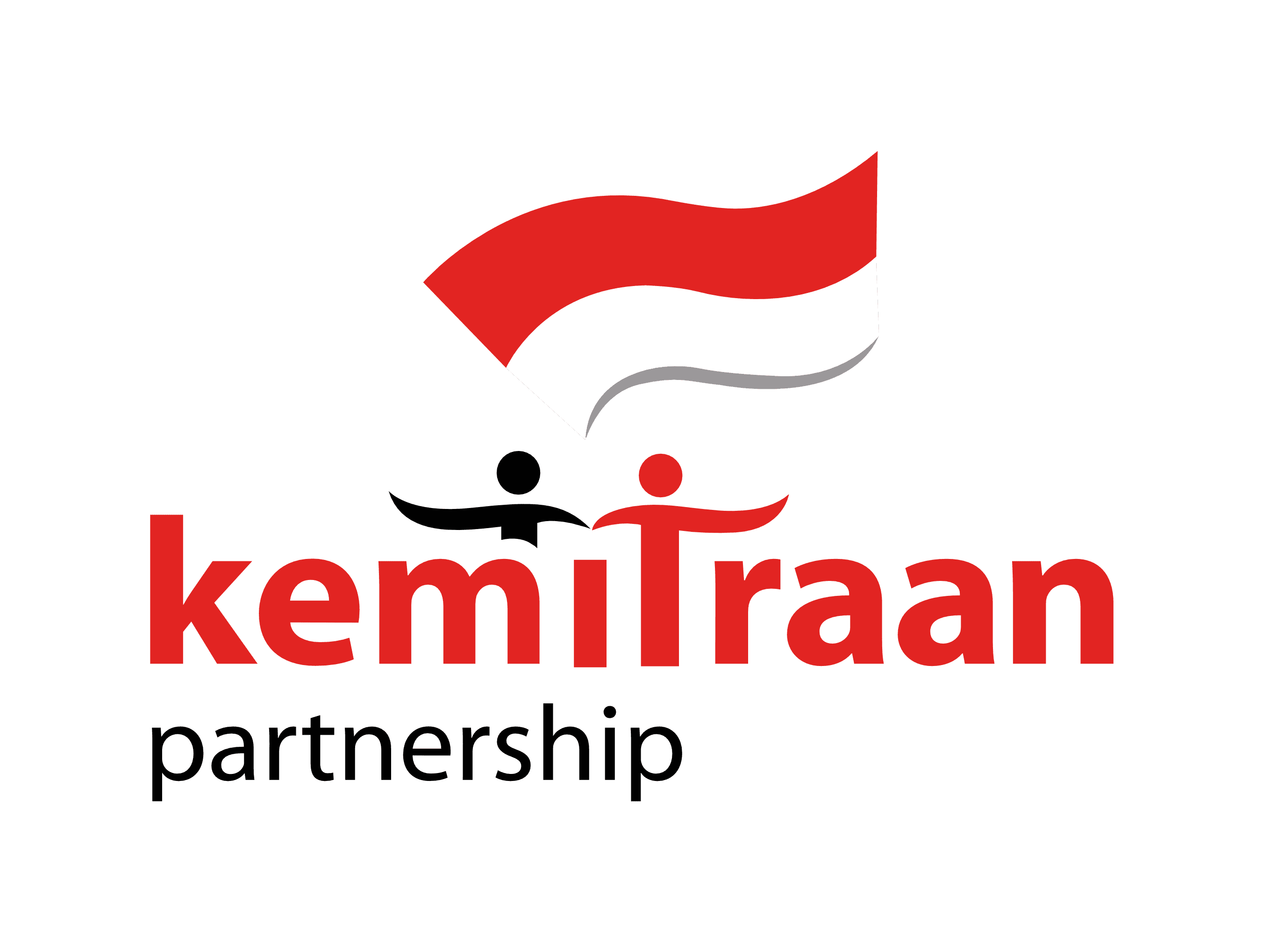KEMITRAAN is an independent organization that consistently promotes and facilitates the implementation of collaborative governance to achieve a more prosperous Indonesia.
Collaborative governance involves engaging multiple stakeholders—governments, civil society, the private sector, and others—to advance inclusive national and local development and deliver public services that are fairer, more transparent, and more responsive to people’s needs. It prioritizes gender equality, disability, and social inclusion (GEDSI) to ensure that all voices, especially those of marginalized groups, are heard.
Over 25 years, KEMITRAAN has played a key role in shaping Indonesia’s journey through five major phases:
- Strengthening democratic institutions;
- Legal and judicial reform, and reinforcing the anti-corruption movement;
- Decentralization for improved public service delivery;
- Capacity building for non-governmental organizations (CSOs);
- Sustainable development and climate change.
Our Approach
For 25 years, KEMITRAAN has adopted a dual strategy: “Capacity from within and pressure from without.”
KEMITRAAN strenghthens the capacity of government institutions – from national, local to the village level – as well as civil society organizations, community groups, and partners, to improve governance from within.
As an NGO, KEMITRAAN also plays an active advocacy role by initiating or joining civil society coalition to promote governance that is inclusive, anti-corruption, human rights, and gender-responsive.
In parallel, KEMITRAAN conducts strategic research to offer evidence-based solutions and policy recommendations for addressing governance challenges.
Accompanying Indonesia’s Transformation:
A Timeline
1999-2000
Born from the Mandate of National Figures
Partnership for Governance Reform, or KEMITRAAN, was founded by prominent national figures from diverse backgrounds, including government, civil society, and the business sector, namely Susilo Bambang Yudhoyono (SBY), Erna Witoelar, Makarim Wibisono, Marzuki Darusman, Nurcholish Madjid, Nursyahbani Katjasungkana, Azyumardi Azra, Petrus Turang, Benyamin Mangkudilaga, Todung Mulya Lubis, Erry Riyana Hardjapamekas, and Daniel Dhakidae.
With support from the United Nations Development Programme (UNDP), the Asian Development Bank (ADB), and other international organizations, KEMITRAAN advanced governance reform efforts to safeguard Indonesia’s democratic transition in the post-reformasi era. Early initiatives focused on reforms in law and the judiciary, public service improvement, and strengthening the anti-corruption movement before eventually expanding in line with the governance challenges faced by Indonesia.
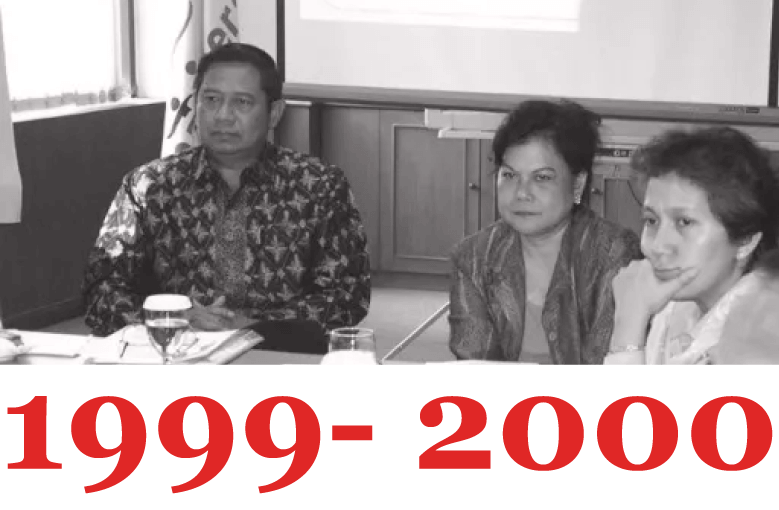
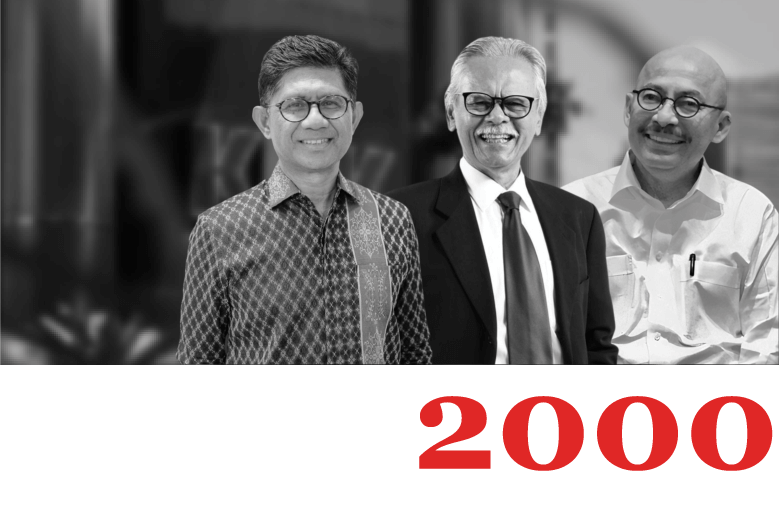
2000
Contributing to Strengthening the Anti-Corruption Movement
KEMITRAAN conducted a national survey in 2000 to map out the state institutions most trusted by the public, then focused on advocating the idea of establishing an independent body from regulation to the technical design of an ideal institution as part of strengthening the anti-corruption movement in Indonesia.
The Corruption Eradication Commission (KPK) was established in 2002, based on Law No. 30 of 2002 on the Corruption Eradication Commission. KEMITRAAN played a role in supporting the selection process of the first commissioners, assisting in the drafting of the institution’s Organizational Structure and Work Procedures (SOTK), and strengthening its institutional capacity.
Alongside efforts to strengthen the KPK as an institution, KEMITRAAN also provided support to anti-corruption movements initiated by Civil Society Organizations (CSOs), including assisting in monitoring the KPK commissioner selection process.
2002
Supporting Legal Reform
and Strengthening the Police Institution
The reform movement led to the dissolution of the Indonesian Armed Forces (ABRI) and the separation of the National Police (Polri) from the military (TNI). KEMITRAAN was intensively involved in revising laws and strengthening the institutional governance of the police, including advocating for policies to increase the number of women in uniform (Polwan).
KEMITRAAN also supported the institutional development of Polri after its separation from the TNI, including conducting studies on community policing schemes, providing human rights training for the Mobile Brigade (Brimob), supporting curriculum development, police financing, addressing corruption within the police, and more.
KEMITRAAN also fully supported the establishment of the National Police Commission (KOMPOLNAS) as well as civil society movements to become both partners and watchdogs in improving police governance in Indonesia.
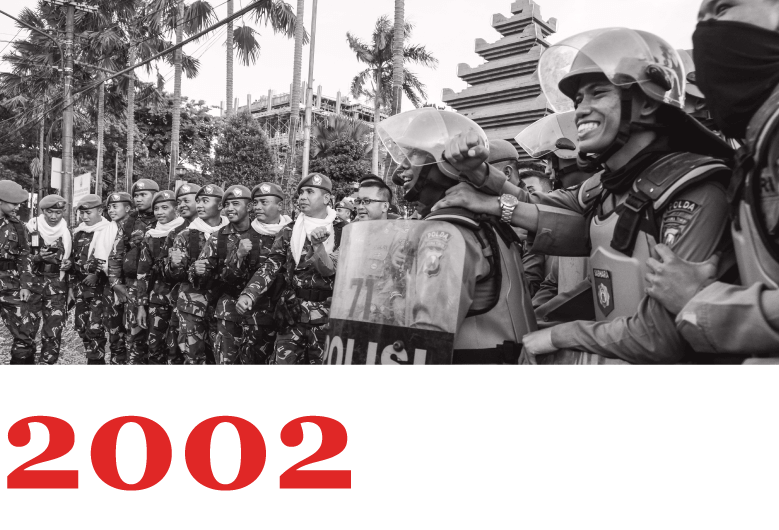
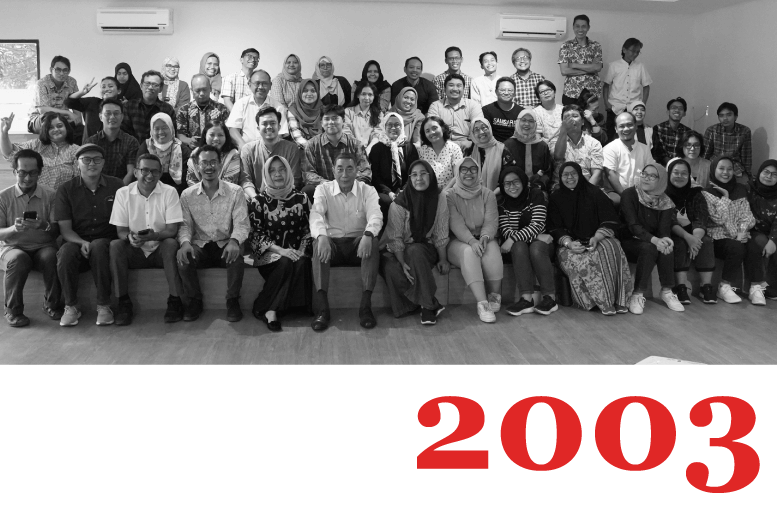
2003
Becoming an Independent Legal Entity in Indonesia
KEMITRAAN officially became a legal entity and was registered as a Non-Profit Civil Partnership, while still listed as an organization under and implementing programs of the United Nations Development Programme (UNDP) and the National Development Planning Agency (Bappenas). In 2009, KEMITRAAN fully transitioned into a non-governmental organization, taking over full responsibility and accountability for its programs, reporting directly to donor countries, as well as to relevant ministries, agencies, and local governments.
2004
Decentralization and Local Governance
In this period, KEMITRAAN further strengthened its investment in supporting Indonesia’s decentralization process, aimed at bringing public services closer to communities while minimizing potential abuse and corruption. On the government side, KEMITRAAN supported the Ministry of Home Affairs in formulating the ideal decentralization framework, including discussions on whether Indonesia should adopt a federal system or maintain regional autonomy.
The implementation of regional autonomy, as mandated by law, required technical regulations at the operational level. Together with the Ministry of Home Affairs, KEMITRAAN developed governance mechanisms for regional autonomy through the Grand Design for Regional Structuring (Desartada) at the national level and the Regional Structuring Design (Detada) at the provincial level.
At the same time, KEMITRAAN and its CSO coalition also monitored and advocated during the legislative process to revise laws in order to strengthen the implementation of decentralization policies. On the public service side, programs to improve service quality were introduced through citizen-based assessments (citizen report cards) in several regions.
The implementation of regional autonomy also gave rise to outstanding local leaders. Several assessment initiatives were carried out by CSOs, including the Autonomy Awards by the Jawa Pos Institute of Pro Otonomi (JPIP), with KEMITRAAN as one of its main supporters.
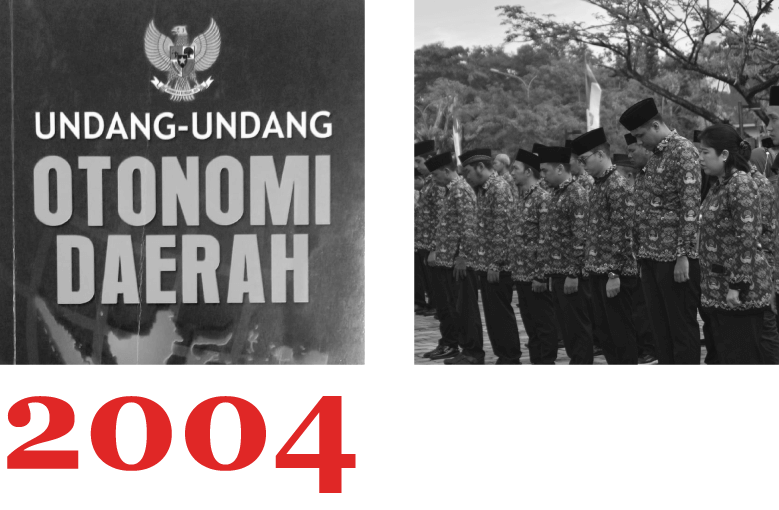
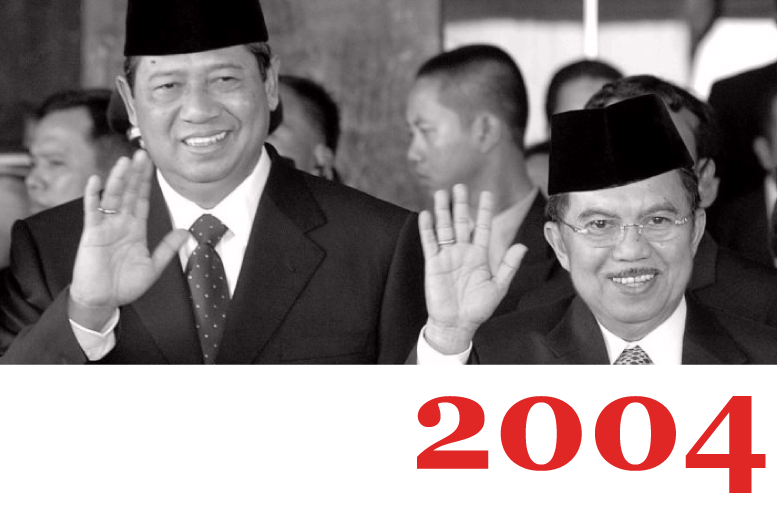
2004
Accelerating the Implementation of Governance
As part of its commitment to accelerating the implementation of governance reform in Indonesia, KEMITRAAN established an expert team led by Sri Sultan Hamengku Buwana X to formulate 20 priority governance reform program proposals for President Susilo Bambang Yudhoyono and Vice President Jusuf Kalla (SBY–JK). The drafting process involved prominent national figures from various sectors.
2007
Local Government Performance Report through the Indonesia Governance Index (IGI)
The implementation of governance reforms after reformasi required performance measurement tools, both as a means of improvement and as a way to replicate best practices. KEMITRAAN initiated the measurement of local government governance performance in Indonesia by establishing the Indonesia Governance Index (IGI).
Over time, the IGI approach, measuring the performance of governance actors (political leaders, bureaucracy, civil society, and the private sector) based on principles such as participation, fairness, transparency, accountability, effectiveness, and efficiency, became the foundation for developing more sector-specific performance measurement tools. These include, among others, the Police Governance Index (ITK) and the IGI–Climate Resilience Index.
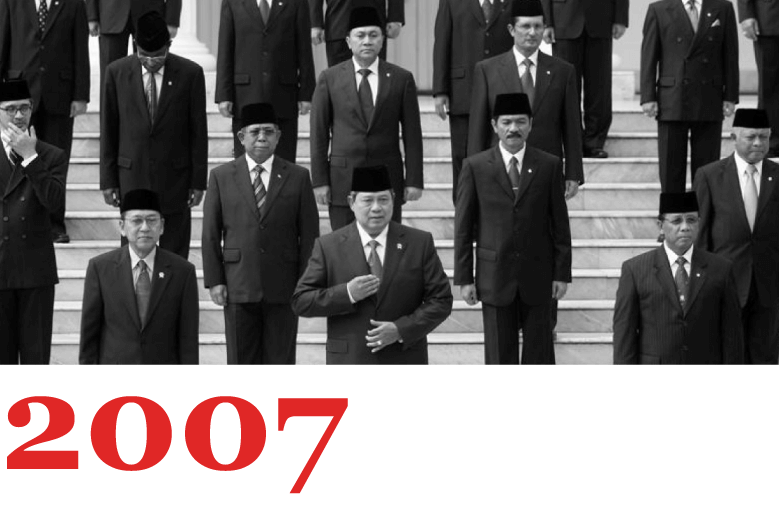
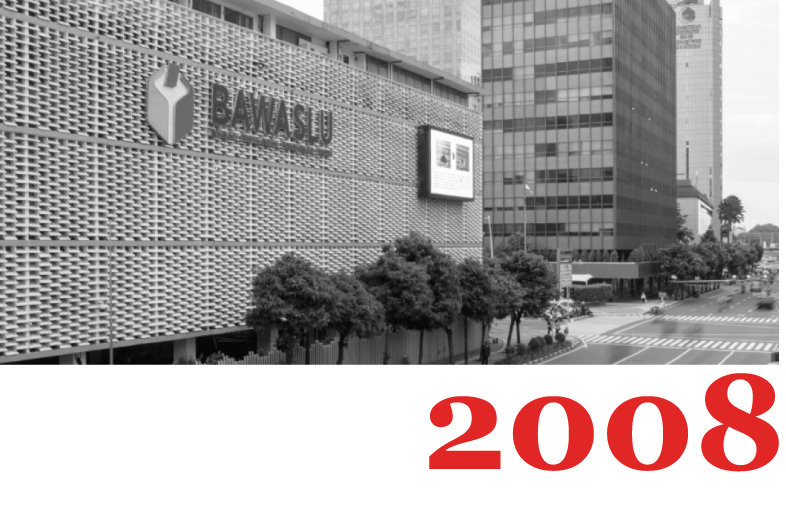
2008
Promoting Electoral Accountability through the Establishment of Bawaslu
Support for the implementation of electoral governance, which began in the early reform era, was strengthened through the initiation of the establishment of the Election Supervisory Body (Bawaslu) as part of efforts to realize fair, transparent, and democratic elections.
Together with civil society partners focused on electoral issues, KEMITRAAN also monitored and advocated in the commissioner selection process as well as in strengthening institutional governance.
2014
Initiating and Advancing the Timber Legality Verification System (SVLK), Later Adopted by the Ministry of Environment and Forestry as the National Standard for Forest Governance in Indonesia
From its initiation to becoming a national standard, we believe that sustainable forests begin with verified legality. SVLK is not only about legal timber, but also about the future of sustainable forestry.
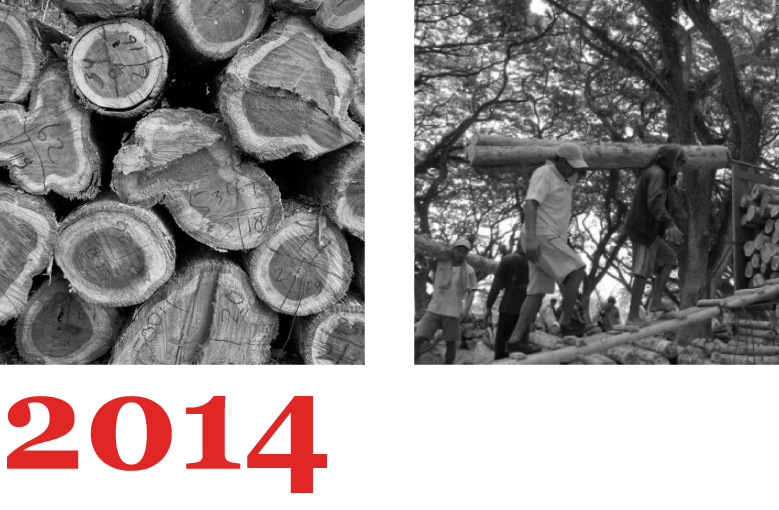
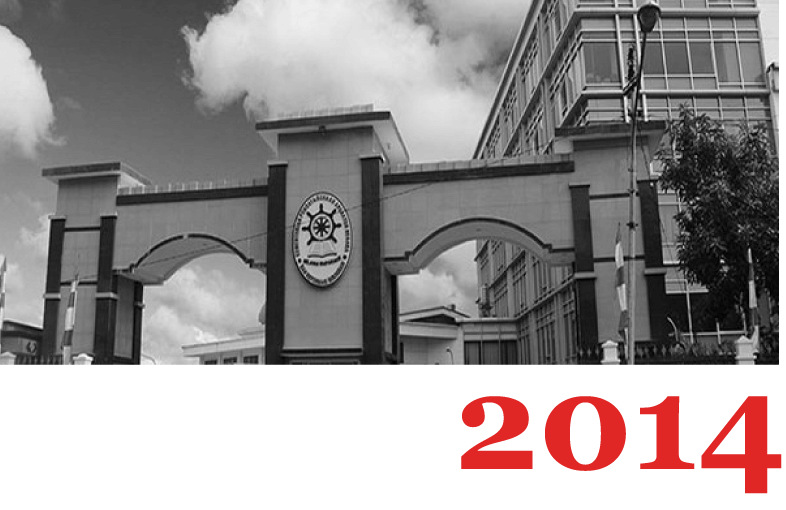
2014
Accelerating Bureaucratic Reform through Reform the Reformers
The journey of supporting bureaucratic reform programs culminated in a proposed priority agenda to accelerate the process, namely by reforming the reformers themselves. KEMITRAAN worked intensively with the Ministry of Administrative and Bureaucratic Reform (PAN-RB), the National Institute of Public Administration (LAN), and civil society organizations to design a series of initiatives. These included developing an open recruitment scheme (lelang jabatan) for filling government positions, formulating workload and job analysis indicators, and strengthening civil society movements in monitoring and policy implementation.
The lelang jabatan policy was not only implemented by the Ministry of PAN-RB in selecting officials within the ministry but was also adopted by the Jakarta Provincial Government under Governor Joko Widodo (Jokowi) and Deputy Governor Basuki Tjahaja Purnama (Ahok) for the selection of village heads (lurah) and other strategic positions. Earlier, KEMITRAAN had first introduced the open recruitment scheme while supporting governance reform in Kebumen Regency, successfully placing the right person in the right job.
2014
Measuring Good Governance Performance in the Police
In collaboration with the Chief of Police’s Assistant for General Planning and Budgeting (Asrena), KEMITRAAN developed the Police Governance Index (Indeks Tata Kelola/ITK) of the Indonesian National Police, a measurement tool to assess the quality of performance across police work units. From 2015 to 2020 (approximately five years), the ITK successfully measured the performance of all Regional Police Headquarters (Polda), Metropolitan and City Police Departments (Polrestabes, Polres Metro, Polresta, Polres), as well as 12 work units at the National Police Headquarters.
One of the key findings of the ITK was the need to establish standards for human resources, facilities, and infrastructure tailored to regional characteristics; for example, policing in border areas, coastal regions, urban areas, and others.
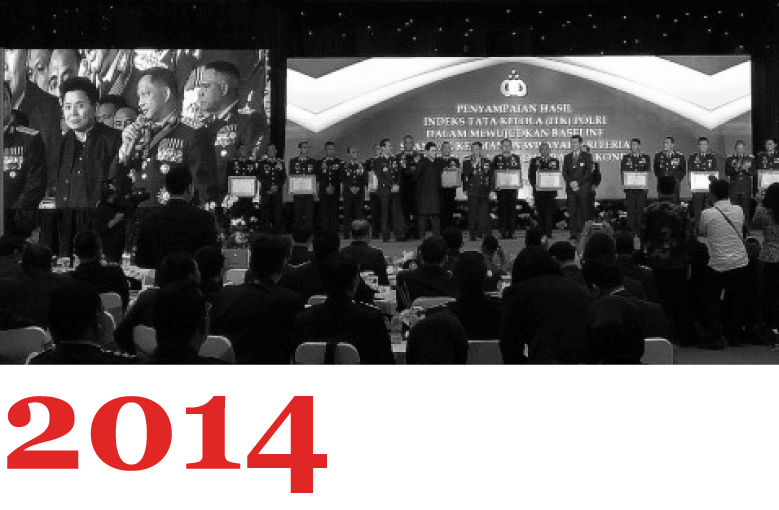
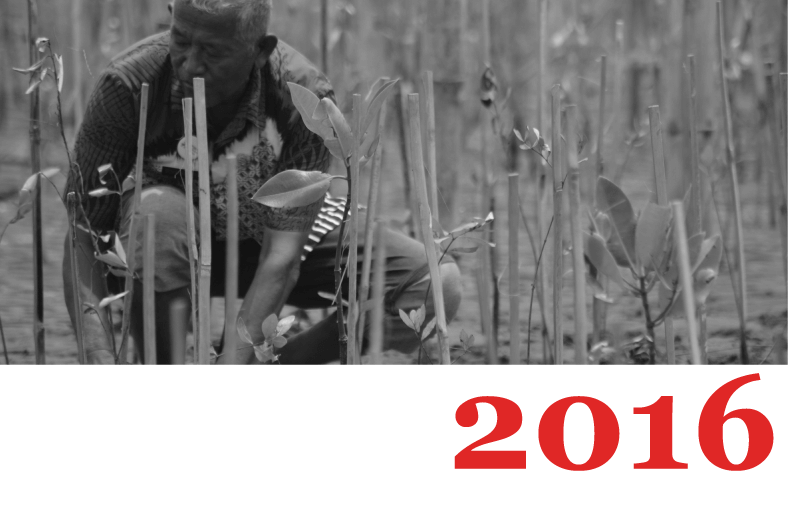
2016
Strengthening Climate Resilience through the Adaptation Fund
After undergoing a series of administrative processes and institutional capacity interviews, KEMITRAAN received international accreditation from the Adaptation Fund in March 2016. At its 27th meeting, the Adaptation Fund Board designated KEMITRAAN as the National Implementing Entity (NIE); the only institution authorized to manage and channel Adaptation Fund resources in Indonesia.
Through this accreditation, KEMITRAAN serves as an intermediary to ensure the quality of climate change adaptation programs proposed by civil society organizations (CSOs) or Implementing Entities (IEs), thereby accelerating resilience to the impacts of climate change in their respective target areas.
2020
KEMITRAAN Officially Becomes an Accredited Partner of the Green Climate Fund (GCF)
KEMITRAAN is the only non-governmental partner in Indonesia accredited by the Green Climate Fund (GCF), the world’s largest climate finance mechanism that supports developing countries in reducing greenhouse gas emissions and strengthening their capacity to respond to climate change.
The GCF was established under the mandate of the United Nations Framework Convention on Climate Change (UNFCCC) in 2010. It plays a crucial role in realizing the Paris Agreement, particularly in supporting the goal of keeping the average global temperature rise below 2 degrees Celsius.
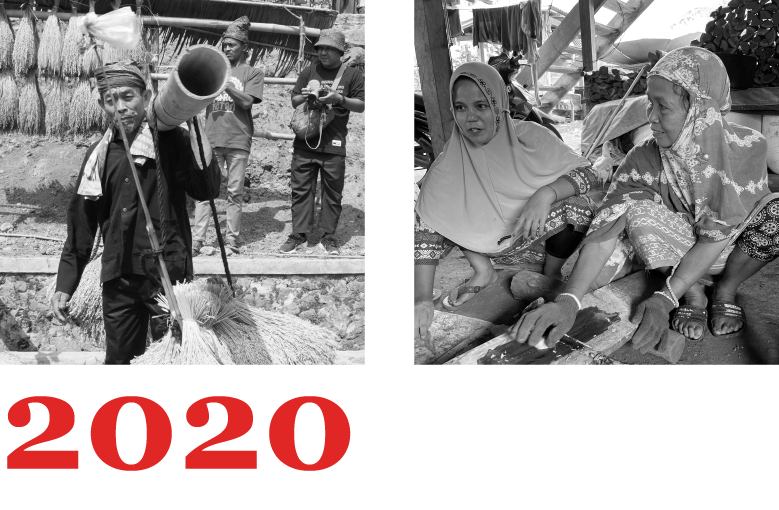
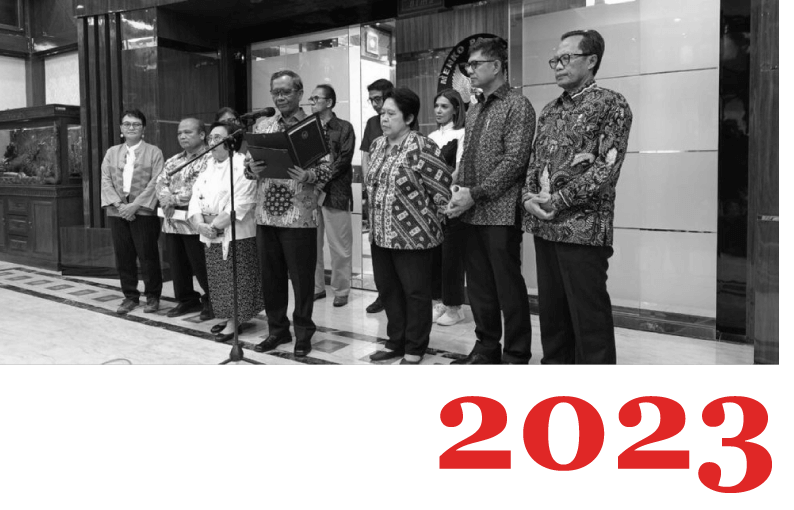
2023
Proposals for Accelerating Legal Reform
KEMITRAAN supported and became part of the Legal Reform Acceleration Team established by President Joko Widodo through the Coordinating Ministry for Political, Legal, and Security Affairs. In addition to the Executive Director serving as Deputy Chair of the Team,
KEMITRAAN’s Program Directors were also appointed as members focusing on:
Judiciary and law enforcement
Agrarian and natural resources sector
Corruption prevention and eradication
Legislation and regulatory sector
